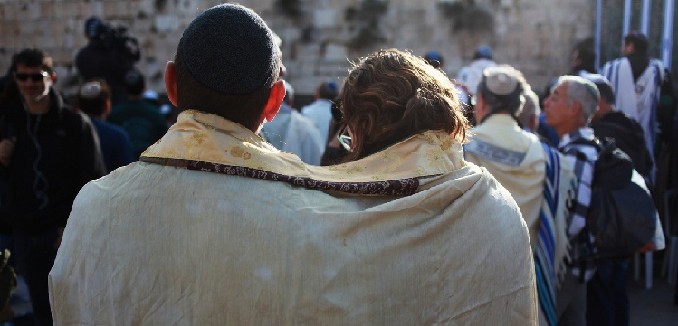The Israeli government is preparing to institute far-reaching reforms in how prayers are conducted at the Western Wall in Jerusalem, Judaism’s holiest site, if the leading group seeking those changes accepts the reforms, according to sources who spoke to The Tower. The dramatic changes come amid a set of additional moves that will cement the increasing liberalization in how the Jewish state relates to non-Orthodox worshipers. Yesterday, Israel’s Religious Affairs Ministry announced that it would start providing funding for non-Orthodox synagogues for the first time in Israeli history.
Sources close to the matter and negotiations and have disclosed to The Tower that Naftali Bennett – the minister holding the Religious Affairs portfolio – is the force behind these progressive ideas and is fully committed to the historic moves.
The reforms seeking to find a workable solution allowing unencumbered women’s prayer at the Western Wall come in the context of private negotiations between Bennett and representatives of “Women of the Wall,” an Israel-based feminist organization that campaigns for the right of women to conduct non-Orthodox prayer services at the site.
The group has generated controversy for engaging in behavior deemed offensive by some Orthodox religious authorities, and was for a time banned from praying at the Wall. A 2013 court ruling, however, found in favor of the organization and ordered Israeli authorities to protect their right to pray.
Women of the Wall representatives have outlined four demands that they seek to have codified: (1) to pray at the Western Wall, (2) to wear tallitot (prayer shawls) as they do so, (3) to don tefillin (phylacteries) as well, and (4) to handle a Torah scroll at the site.
Bennett, a religiously observant Orthodox Jew who leads the religious and conservative Jewish Home party, is pursuing a course that seeks to fulfill the rights of all denominations and genders, and has offered to immediately codify the first two of the Women of the Wall’s four requests.
Moreover, Bennett has committed to the women that should they accept the offer, he will seek to implement the so-called Sharansky plan of Jewish Agency for Israel chief Natan Sharansky, under which the prayer area near the Wall would be expanded to accommodate egalitarian Jewish worship. Supporters of Women of the Wall have hailed the plan as a dramatic step toward greater religious pluralism at the holy site.
To underscore the seriousness of the offer, to which the Women of the Wall are expected to respond by June 6th, Bennett would commit to implement Sharansky’s plan within two years. If that deadline passes, Bennett would implement all the reforms at the existing women’s prayer area at the Western Wall.
Advocates for Israeli religious pluralism have hailed the reforms.
“Bennett is certainly defying expectations and showing both creative and courageous leadership,” one longtime observer of these issues told The Tower.
“No less important than the willingness to resolve the questions of women’s prayer at the Wall, is the extraordinarily meaningful move to provide state funding to congregations who chose Reform or Conservative rabbis to lead their communities. Minister Bennett and the government deserve wide praise, and it is hope of those of us in North America who are part of the non-Orthodox movements that politics in Israel – which in this case seem to be coming from the center left and left side of the spectrum – do not get in the way of this historic progress. Sometimes you’ve got to take ‘yes’ for an answer.” the source added.
[Photo: Tal King / Flickr]




